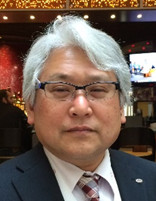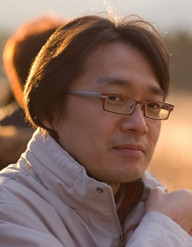Description
IoT, which connects various people and things such as connected devices, connected cars, and connected factories, is affecting our lives. At home, at work, at airports, and at stadiums, we connect devices to the edge, on-premises, public and private clouds, analyze them, and then use the data to make decisions. Implementing IoT for data collection and data interoperability requires easy integration with existing business workflows and systems, and a secure and reliable network that connects devices and processing and analysis edges, on-premises, public and private clouds. To achieve this, the network must have a variety of functions to combine communication media, verify connections, and secure routes.
This track brings together global experts from industry, government, and academia to discuss topics on the various functions for communication and networks required to advance the world toward a successful understanding and implementation of the IoT. To discuss these and many other related topics, we bring together experts in different environments and application configurations across different IoT and topic areas. Specifically, this track covers the following topics:
- 5G and Beyond IoT Roles: Technology, Public and Private Networks, Applications, Deployment
- The role of IoT in Wi-Fi 6 and Wi-Fi 7
- Bluetooth, 802.15.4/ZigBee, LoRA, NB-IoT, MQTT, and other narrowband protocols for LPWAN networks
- Connecting Computing in IoT: Connecting Edge, Fog, and Cloud
- IoT security, privacy, and trust challenges
- Distributed Timing and Synchronization with TSN, IEEE- 1588, WR and Other PTP Protocols in IoT Applications: Exploiting Ultra-Low Latency/High Reliability Networks
- IoT Network Orchestration: Challenges and Opportunities, Leveraging AI
- IoT Greening: Energy Efficiency and Power Consumption in IoT Devices and Networks
Chairs
Mr.Shoji Temma, Principal Architect, Fujitsu Limited, Japan

Shoji Temma received M.S. degree in system and information from Hiroshima University in 1983. He started work for product development for fault-tolerant server, cryptography accelerator, network server integrating load balancer and security functions in Fujitsu Limited from 1983. He is currently a Principal Architect. He developed network system for Fujitsu cloud service. He is interest in CPS/IoT architecture and trust data distribution architecture. He had activities in IIC and OpenFog Consortium, and in OpenFog Consortium, He was a Technical reader in Japan Region. His current research is focused on trust data distribution, and He work for trust data distribution network system in a national project SIP (Cross-ministerial Strategic Innovation Promotion Program)
Mr.Shunsuke Kikuchi, Senior Researcher, SAKURA internet inc., Japan

Shunsuke Kikuchi received M.E. degree in Telecommunications Engineering from WASEDA University in 1999. He has been engaged in research of policy networking, network anomaly detection, network virtualization, etc. at Fujitsu Laboratories since 1999, and at National Institute of Information and Communications Technology (NICT) for two years from 2011, where research on New Generation Network(NWGN) and CCN/ICN. He has moved to SAKURA internet Research Center since 2017. As a contributing member of the OpenFog consortium he is involved in testbed activities. Currently, he advocates the Superorganism Data Center Concept in which computing resources distributed not only in the cloud but also in the real world operate organically and promotes research for its realization.


